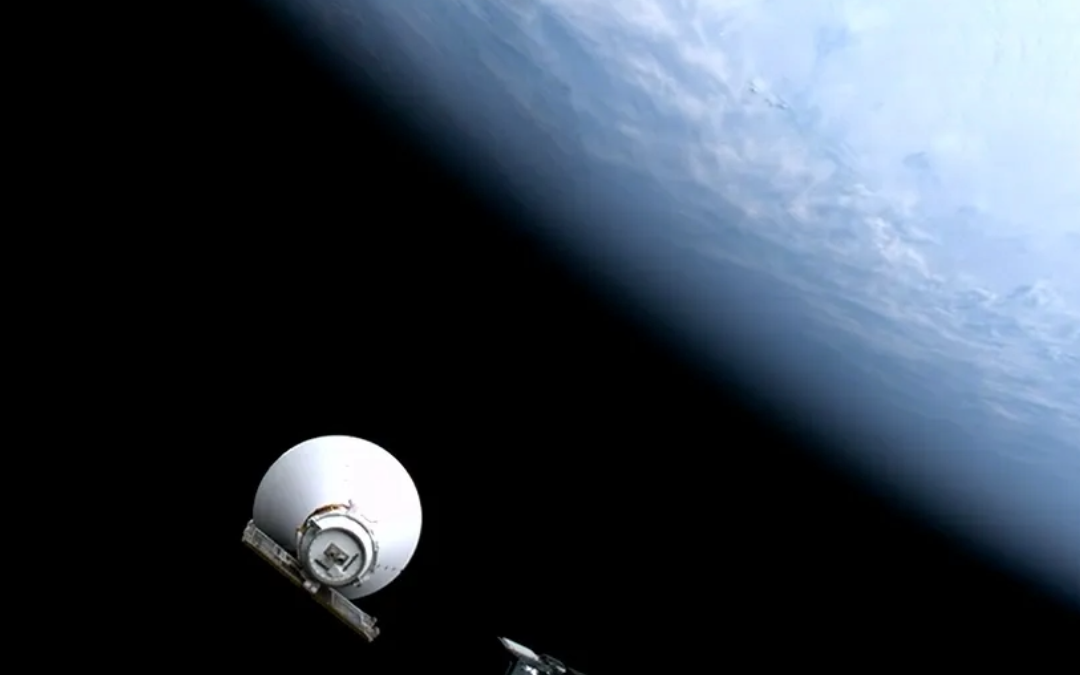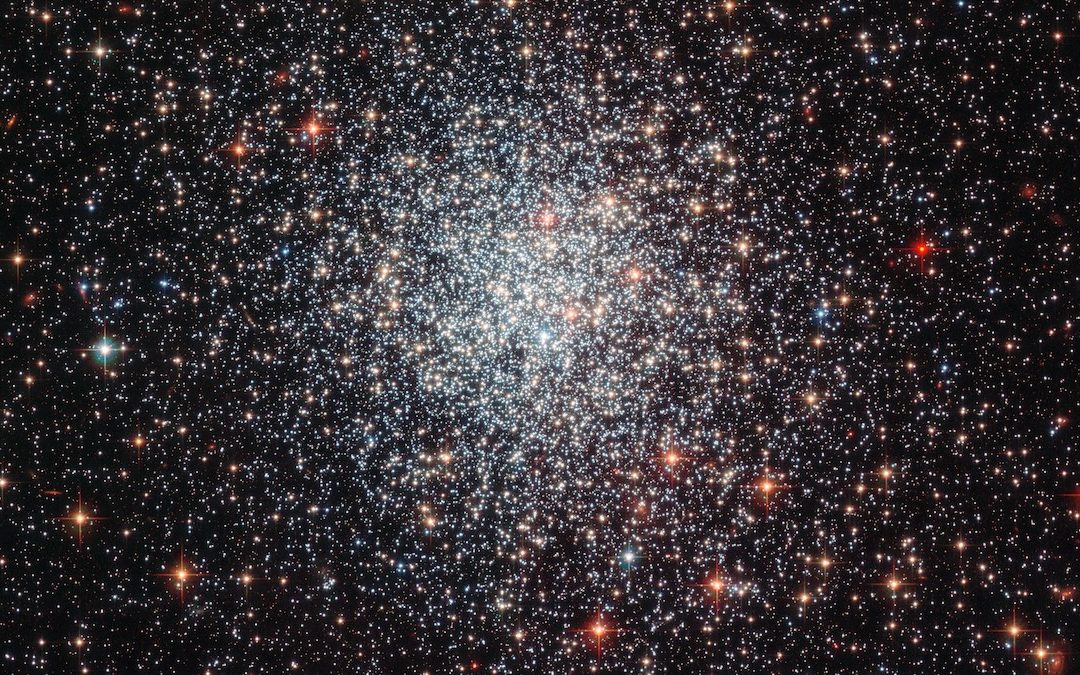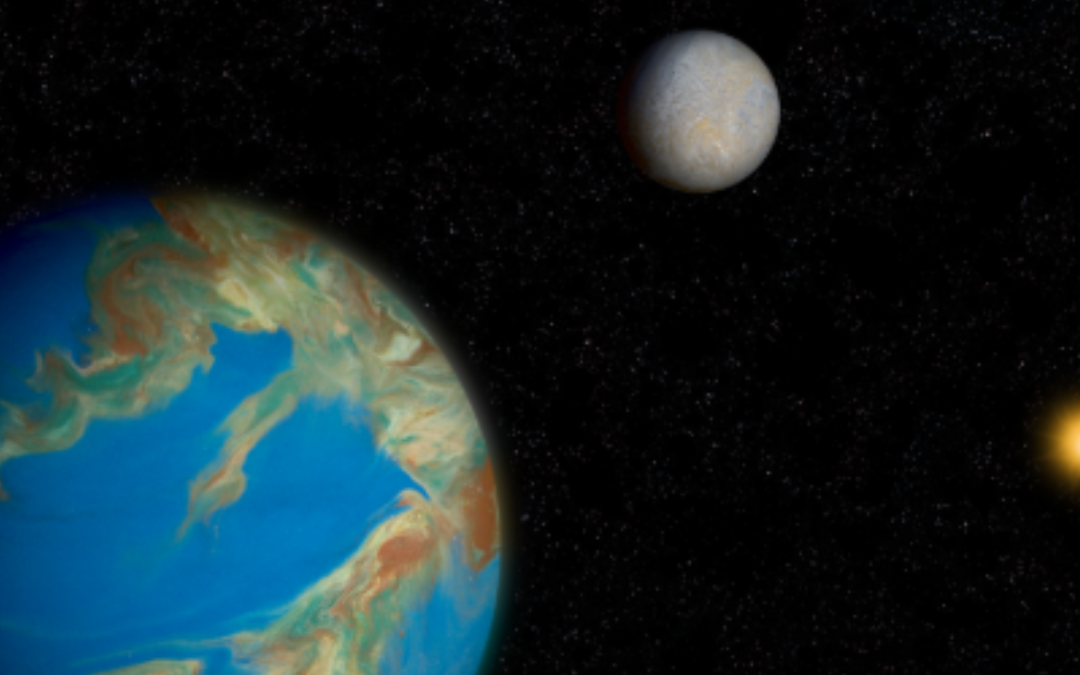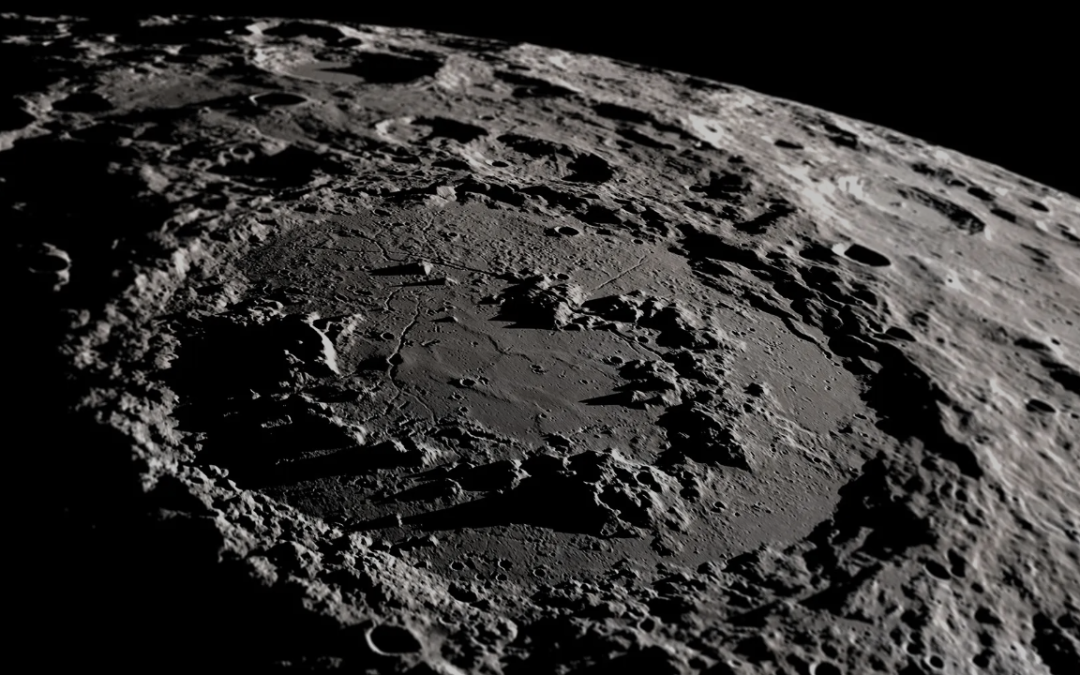NASA’s newly launched SphereX mission is up & operational and has completed its initial checkout and “first light”. Everything looks good! And now it’s starting its science operations.



Fraser Cain
Universe Today

Dr. Pamela Gay
CosmoQuest

NASA’s newly launched SphereX mission is up & operational and has completed its initial checkout and “first light”. Everything looks good! And now it’s starting its science operations.

There are stellar-mass & supermassive black holes. But very little evidence of anything in between. Where are all the intermediate-mass black holes?

It’s in the news and people are claiming aliens… but is it aliens? Let’s see what the data actually says.

It seems like everyone just wants to explore the Moon’s South Pole. What makes this region so special and what are the special challenges that explorers will face. Learn here!
Recent Episodes
Pollution will ultimately give away a society. And this episodes will shows us the potential indicators of advanced extraterrestrial civilizations. Also the various ways such civilizations might unintentionally or intentionally reveal their presence through...
If you’re an astronomer you depend on accurate observations of stars, but there’s a problem. Stars are sneaky! Changing in size, brightness, color, they hide their chemistry, their age and even their companions from all but the cleverest observers. Stars explode...
From little Ingenuity to the future Firefly and all our Earth Science fliers, let's look at the buzzy scientists. NASA’s Mars Ingenuity helicopter showed us how wonderful a flying science platform can be on another world. Soon there’ll be a helicopter flying on Titan,...
What can we hope (or dread) to see in 2025? Last week we talked about the 2024 strangeness. Now we’re gonna talk about the upcoming space stories for 2025 that we’re looking forward to. It’s a nice mix of new rockets, new missions and new fly-bys. Show Notes 2025...
2024 was a strange year! I’ll let your imagination take flight and consider how 2024 was weird for you. But, for space and astronomy we had some interesting, revolutionary, unsettling and downright weird stories pop up. Today let’s talk about them. Show Notes Color of...
It’s time for our Holiday Gift Guide, where we suggest ideas for presents for the space fans in your life! What books are we reading? What games are we playing and what telescopes are we admiring? Show Notes Lego Sets for Space Fans Telescopes and Astronomy Equipment...
Last week we talked about the Einstein probe. So this week it is only natural that we talk about the man himself, Albert Einstein. He revolutionized the field of physics, played a vital role in the early 20th century and struggled to unite the forces of the Universe...
Another day, another space telescope! Today we’re looking at the newly launched Einstein Probe. A collaboration between the Chinese Space Agency and the European Space Agency. The mission has been operating since January searching the cosmos for short, bright flashes...
Let's look at the Euclid of Alexandria, the father of geometry and his contributions in celestial mechanics and orbital calculations. Show Notes Who Was Euclid of Alexandria? Importance of Euclid’s work: Euclid’s Contributions to Mathematics Influence on Astronomy...
Let's look at the Euclid Space Telescope.. Show Notes The Euclid Mission Overview Mission Location and Challenges Science Goals of Euclid Spectrograph and Redshift Measurements Significance of Mapping Dark Matter and Dark Energy Preliminary Data Release Model...
Last week we talked about the Neil Gerhels Swift Telescope, this week we’ll be talking about the man behind the mission. Gerhels was the principle investigator behind many missions, including Swift. Show Notes Halloween and Elections Neil Gehrels Overview Career...
Let's look over the long life of the Neil Gehrels Swift Telescope as it watches for the multi-spectral flashes of high energy explosions. Show Notes Introduction to Swift & Its Purpose. Swift’s Rapid Response to GRBs. Swift’s Role in Expanding GRB...
Let's talk about that giant telescope that's changing everything. We have been waiting our entire careers to make this episode on the James Webb Space Telescope, AKA the JWST. This historic Observatory was launched just a couple of years ago and it's already...
In our last episode, we talked about the Parker Solar Probe. As always, we like to talk about the person who inspired the mission. What makes this amazing and different is that Eugene Parker was there to watch the launch of the mission that shares his name. Why is he...
The Sun. It’s that ongoing thermonuclear explosion that’s happening right over there. Although the Sun is necessary for life on Earth, we still have questions. So NASA has sent the Parker Solar Probe to visit the Sun, up close to get some questions answered. Show...
We’re back from our summer hiatus. Before we left, we gave you a bunch of stories we thought might be important. Now let’s look back and see how our predictions went. And what surprises did happen? Show Notes Evidence of vulcanism on the Moon China's Chang'e 6 mission...
Starliner S2.1 docking on May 20, 2022 (NASA) Prior to recording their exoplanets episode, Fraser and Pamela discussed their wild week of space flight news and discussed their concerns about the Starliner and StarShip programs. This is particularly timely as we...
In this bonus episode, we bring you behind the scenes audio from our June 10 pre-show discussion about the “far too much news” that occurred the week of June 3, 2024. Check out the original recording on YouTube here. This episode was sponsored by Mint Mobile.
Normally, Pamela refuses to think about the future. But today, on our final episode before hiatus, she’s throwing out those rules. Here’s what we’re excited about for the future, especially in the next couple of months until we return in September Recorded: 10 June...
It’s almost time for our summer hiatus. A time to catch up on all that reading. We’ll give you some book recommendations, and what we’re hoping to read during the summer. https://www.youtube.com/live/LFCW2nCw2-w?feature=shared Show Notes The following books were...